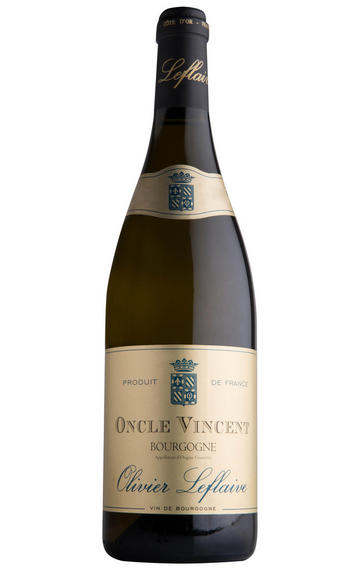
2020 Bourgogne, Oncle Vincent, Olivier Leflaive, Burgundy
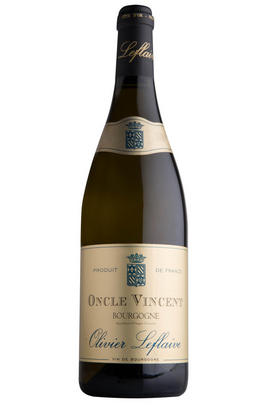
Critics reviews
Jasper Morris MW, Inside Burgundy (January 2022)
About this WINE
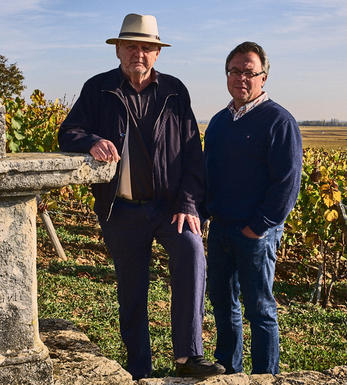
Olivier Leflaive
Olivier Leflaive studied at business school before heading to Paris, where he lived a rather bohemian life in the 1970s. He returned to Burgundy in ’81 to manage Domaine Leflaive with his uncle Vincent and, later, his cousin Anne-Claude.
He set up his own négociant business in ’84, leaving the family domaine a decade later; he gave 15 years’ notice that he would take back his share of the vines.
Winemaker Franck Grux now makes 85-90 different cuvées, vinifying the equivalent of 120 hectares – 17 of which are estate-owned. The focus is on elegance and finesse over power.
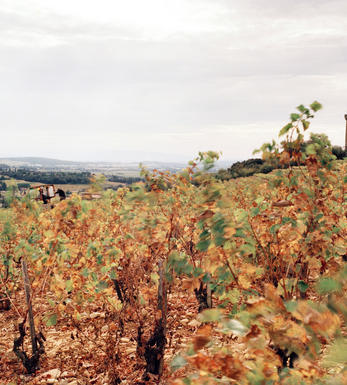
Bourgogne Blanc
Bourgogne Blanc is the appellation used to refer to generic white wines from Burgundy, a wide term which allows 384 separate villages to produce a white wine with the label ‘Bourgogne.’ As a result of this variety, Bourgogne Blanc is very hard to characterise with a single notable style, however the wines are usually dominated by the presence of Chardonnay, which is just about the only common factor between them. That being said, Chardonnay itself varies based on the environmental factors, so every bottle of Bourgogne Blanc will vary in some way from the next! Pinot Blanc and Pinot Gris are also permitted for use in Bourgogne Blanc under the regulations of the appellation.
As Bourgogne Blanc is very much an entry-level white wine for most regions in Burgundy, prices are usually very reasonable, and due to the terroir and climate of Burgundy, Bourgogne Blanc wines tend to have a strong acidity to them, combined with a vibrant and often fruity palate when compared with other whites from the New World, say, allowing fantastic matchmaking with many different kinds of food.
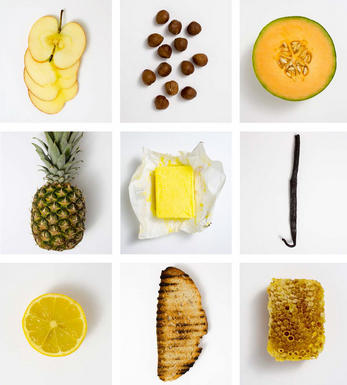
Chardonnay
Chardonnay is often seen as the king of white wine grapes and one of the most widely planted in the world It is suited to a wide variety of soils, though it excels in soils with a high limestone content as found in Champagne, Chablis, and the Côte D`Or.
Burgundy is Chardonnay's spiritual home and the best White Burgundies are dry, rich, honeyed wines with marvellous poise, elegance and balance. They are unquestionably the finest dry white wines in the world. Chardonnay plays a crucial role in the Champagne blend, providing structure and finesse, and is the sole grape in Blanc de Blancs.
It is quantitatively important in California and Australia, is widely planted in Chile and South Africa, and is the second most widely planted grape in New Zealand. In warm climates Chardonnay has a tendency to develop very high sugar levels during the final stages of ripening and this can occur at the expense of acidity. Late picking is a common problem and can result in blowsy and flabby wines that lack structure and definition.
Recently in the New World, we have seen a move towards more elegant, better- balanced and less oak-driven Chardonnays, and this is to be welcomed.


Buying options
Add to wishlist
Description
There’s a modest shift in this year’s blend: the domaine now manages two vineyards; and five domaine-owned sites make up the balance. The proportion of new oak (15%) is unchanged, as is the wine’s ability to punch above its weight. The fruit has a Puligny-style bite, with the clever use of the lees adding a creamy sidenote. Drink 2023-2030.
wine at a glance
Delivery and quality guarantee